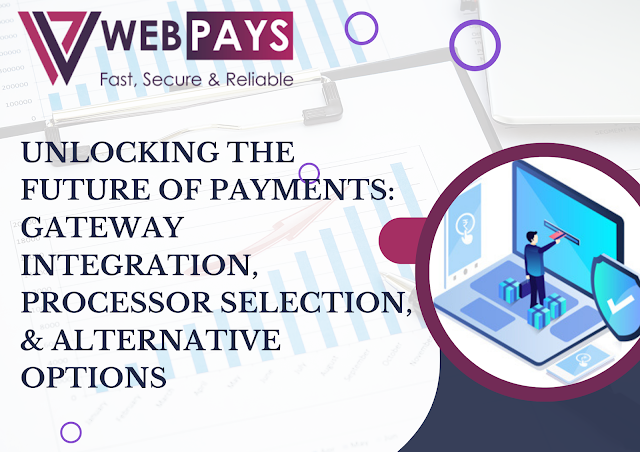Unlocking the Future of Payments: Gateway Integration, Processor Selection, & Alternative Options


In an increasingly interconnected world, businesses are
expanding their horizons and reaching out to customers on a global scale.
However, when it comes to processing payments from international customers, the
use of offshore payment gateways has become an indispensable tool. This blog
will explore the concept of offshore payment gateways, their advantages, and
the considerations for businesses looking to implement them in their
operations.
An offshore payment gateway is a financial service that
enables businesses to process payments from customers located in different
countries. These gateways serve as intermediaries between the business, the
customer, and various financial institutions, facilitating secure and efficient
transactions. As the global e-commerce market continues to grow, offshore payment
gateway have become a pivotal solution for international business
expansion.
With the proliferation of e-commerce, businesses now have
access to a vast global customer base. To tap into this immense potential, it's
essential to provide a seamless payment experience. Offshore payment gateways
allow businesses to accept payments in multiple currencies, accommodating the
diverse preferences of their international customers.
Statistics show that cross-border e-commerce is on the rise,
with global online retail sales expected to reach 6.3 trillion U.S. dollars by
2023, according to Statista. To capture a share of this lucrative market,
companies must be equipped to process international payments effectively.
Payment security is paramount in the digital age. Offshore payment
gateways for high risk businesses often employ advanced security
measures, including encryption and fraud detection, to safeguard sensitive
customer information. In fact, a study by Deloitte reports that 38% of online
consumers are concerned about the security of their payment information. By
using offshore gateways, businesses can address these concerns and gain the
trust of their global customer base.
Offshore payment gateways can offer businesses cost advantages
by providing competitive exchange rates and lower transaction fees compared to
traditional banks. Additionally, some gateways offer the option to settle funds
in a single currency, which can help mitigate the risks associated with
currency fluctuations.
Navigating international financial regulations can be complex.
It's crucial for businesses to ensure that their offshore payment gateway is
fully compliant with the legal requirements of both their home country and the
countries where they conduct business. Engaging legal counsel or consultants
with expertise in international financial regulations is advisable.
Businesses must carefully assess the exchange rates and fees
offered by offshore merchant account provider. Small differences in
exchange rates and transaction fees can significantly impact a company's bottom
line. By comparing multiple providers, businesses can choose the one that
aligns best with their financial goals.
A seamless payment experience is essential for customer
satisfaction. Offshore payment gateways should support a wide variety of
payment methods and provide responsive customer service. A study by PwC found
that 73% of consumers consider the overall experience as a critical factor when
deciding to make an online purchase.
Managing currency risk is vital for businesses dealing with
international transactions. Offshore payment gateways can offer tools and
strategies to help mitigate risks associated with currency fluctuations. This
is especially important for businesses that deal with high volumes of
international transactions.
In an era where e-commerce knows no borders, the use of offshore
payment gateways has become a necessity for businesses looking to expand their
global reach. With statistics showing the steady growth of cross-border
e-commerce, these gateways provide a secure, cost-effective, and convenient way
to process payments from customers worldwide.
Businesses can benefit from offshore payment gateways. They
should consider factors like legal compliance, exchange rates, customer
experience, and risk management. These considerations help them navigate
international financial transactions effectively.
As the world continues to become more interconnected, offshore
payment gateways are poised to play an increasingly critical role in
facilitating global commerce. For businesses willing to explore these waters,
the potential for growth and success in the global marketplace is vast and
promising.
Comments
Post a Comment